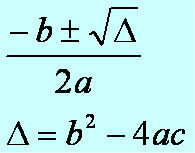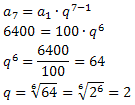What is this: Philosophy? If this question continues to be asked, it is because it is a challenge to try to answer it. There is no simple definition that can resolve the issue, due to the extent of the content produced, which is conventionally called “philosophy” and the different responses that philosophers have given to it throughout history, often refuting the interpretations of others. That is, the question “What is Philosophy” itself is what we call a “philosophical problem”: problems that can only be solved through rational investigation, because they cannot be verified through an experimentation, as Mathematics does, through calculations, or document analysis, as History does, by example.
Let's take the word "Justice" as an example, by the historical method, we can do an investigation of when this notion appears, in what context, what were its antecedents, what the meaning of this word had in a given era. If two partners want to share the company's profits fairly, that is, equally dividing the profit and costs, Mathematics can help us through calculations. However, if we try to answer "What is justice?" or: “Is the notion of justice part of the human condition?”, the only recourse we will have will be our reason, our capacity to think.
Since the invention of the word “philosophy” by Pythagoras, we have several philosophical problems and different answers to each one of them. To thepre-Socratics:The physis; Pfor theAncient Philosophy:the political, technical and ethical activity of man; to theMedieval Philosophy,the conflict between faith and reason, the Universals, the existence of God, the conciliation between divine Foreknowledge and Free Will; to theModern Philosophy,empiricism and rationalism, for theContemporary Philosophy, several problems regarding existence, language, art, science, among others.
We also have a diversity ofliterary forms of philosophy: Parmenideswrote in poem form;Platowrote dialogues;Epicuruswrote letters;Aquinashe developed the “questio disputatio” method in his classes that were transcribed by his students;Nietzschewrote in the form of aphorisms. From these examples, which do not exhaust the plurality of writing and philosophical activity, we can understand that the ways of doing philosophy go far beyond treatises and dissertations.
The understanding that we sometimes have of Philosophy as an activity reserved for geniuses and that, therefore, it does not need to worry about making itself understood to other humans is based on an understanding of the activity of thought being superior to the activity of language, as if they were dissociated. However, we cannot yet, however developed our technologies are, express thought without language, nor can we exercise language without it being, first, elaborated by thought.
Emergence of Philosophy
Philosophy, as we know it today, that is, in the sense of rational and systematic knowledge, was an activity which, according to the history of philosophy, began in Ancient Greece formed by a set of city-states (polis) independent. This means that Greek society had characteristics favorable to this form of expression based on rational investigation. These features were:poetry, religion and sociopolitical conditions.
As of century VII a. a., the men and the women are not satisfied anymore with a mythical explanation of the reality. Mythical thought explains reality from an external reality, of a supernatural order, which governs nature. The myth does not need a rational explanation and, therefore, it is associated with the acceptance of individuals and there is no room for questioning or criticism.
Is onMiletus, located in Ionia (present-day Turkey), in the 6th century BC. Ç. that is borntaleswho, for Aristotle, is the initiator of philosophical thought that is distinguished from myth. However, mythical thought, although without the function of explaining reality, still echoes in philosophical works, such as those of Plato, the Neoplatonists and the Pythagoreans.
The authorship of the word "philosophy" was attributed by tradition toPythagoras.The two main sources on this areCicero and Diogenes Laertius. Let's see what Cicero writes:
“The most learned disciple of Plato, Heraclides Ponticus, narrates that they took to Fliunte someone who spoke learnedly and extensively with Leonte, prince of the fliuncios.
Since his ingenuity and eloquence had been appreciated by Leonte, the latter asked him what art he professed, to which he replied that he knew of no special art, but that he was a philosopher.
Astonished Leonte at the novelty of that term, he asked what kind of people were philosophers and what distinguished them from other men.
(...)
[Pythagoras replied] Moreover, men (…) compare themselves with those who go from the city to a popular festival: some go in search of glory while others for gain, what remains, however, a few who, completely disregarding other activities, diligently investigate the nature of things: they claim to be seekers of wisdom - either to say philosophers - and as it is much nobler to be a disinterested spectator, in life investigation and knowledge of the nature of things are also above any other activity".
We perceive, through this fragment of Cicero that:
1) The source on which he bases his writings on Pythagoras is Heraclides Ponticus, a disciple of Plato, but who was also influenced by the Pythagoreans. However, the veracity of this information is unknown, as noted by Ferrater Mora, who also observes that it is not possible to know whether “philosopher” for Pythagoras means the same as it would for Plato or Aristotle.
2) Pythagoras, instead of calling himself “sage”, he prefers to call himself “philosopher”, that is, one who has love for wisdom. We also notice that the name “philosopher” appears and not “Philosophy” which, as an activity, has a later origin. As can be seen in the fragment, there was no “special art” at the time.
What some philosophers say about What is Philosophy:
Aristotle (384 a. Ç. - 322 a. Ç.):“Admiration has always been, then as now, the reason why men began to philosophize: at first they were surprised by the most common difficulties; then, advancing step by step, they tried to explain larger phenomena, such as the phases of the moon, the course of the sun and the stars, and finally the formation of the universe. Looking for an explanation and marveling is acknowledging oneself ignorant."
Epicurus (341 a. Ç. - 270 a. Ç.):"Never put off philosophizing when you're young, and never tire of doing it when you're old, since no one is ever too mature or too mature to gain the health of the soul. And whoever says that the time to philosophize has not yet come or has passed is similar to someone who says that the time to be happy has not yet come or has passed."
Edmund Husserl (1859-1938): "What I intend under the title of philosophy, as the end and field of my elaborations, I naturally know. And yet I don't know... Who is the thinker for whom, in his life as a philosopher, philosophy has ceased to be an enigma?"
Friedrich Nietzsche (1844-1900):“A philosopher: is a man who experiences, sees, hears, suspects, hopes and dreams constantly extraordinary things; that he is struck by his own thoughts as if they came from outside, from above and below, as by a kind of events and sparks that only he can be the target of; which is perhaps itself a thunderstorm pregnant with new lightning; a fatal man, around whom he always topples and rolls and bursts and disturbing things happen”.(Beyond good and evil, p. 207)
Kant (1724-1804): “You don't teach philosophy, you teach philosophizing”.
Ludwig Wittgenstein (1889-1951):"What is your goal in philosophy? - Show the glass output to the fly."
Maurice Merleau-Ponty (1908-1961): "The real philosophy is to relearn how to see the world."
Gilles Deleuze (1925-1996) and Faithix Guattari (1930-1993):"Philosophy is the art of forming, inventing, manufacturing concepts... The philosopher is the friend of the concept, he is a potential concept... Creating ever-new concepts is the object of philosophy."
Karl Jaspers (1883-1969):“Questions in philosophy are more essential than answers and each answer becomes a new question" (Introduction to Philosophical Thought, p. 140).
García Morente (1886-1942): “In order to approach philosophy, to enter the territory of philosophy, a first mood is absolutely essential. It is absolutely essential that the aspiring philosopher feels the need to carry out his study with a childlike disposition. (…) He for whom everything is very natural, for whom everything is very easy to understand, for whom everything is very obvious, can never be a philosopher”. (Fundamentals of philosophy, p. 33-34)
(Except for the quotes by Nietzsche, García Morente and Karl Jaspers, the others were transcribed as quoted by Sílvio Gallo in “Ethics and Citizenship – Paths of Philosophy, p. 22)
Cicerone, Le Discussioni di Tuscolo, 2 vol. Zanichelli, Bologna, 1990.
GALLO, Silvio. Ethics and Citizenship - paths of philosophy. São Paulo: Papirus, 2002.
GARCIA MORENTE, Manuel. Fundamentals of Philosophy. São Paulo: Mestre Jou, 1970.
JASPERS, Karl. Introduction to philosophical thinking. São Paulo, SP: Cultrix.
Nietzsche. Beyond good and evil. Prelude to a philosophy of the future. São Paulo: Martin Claret, 2007.
By Wigvan Pereira
Graduated in Philosophy



